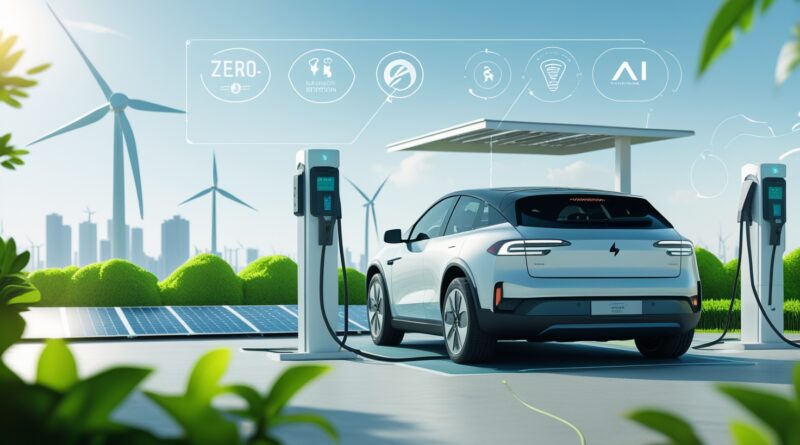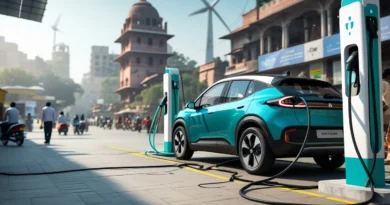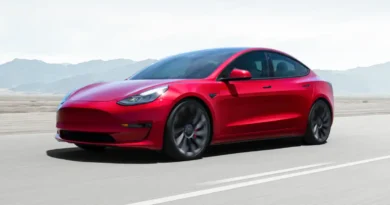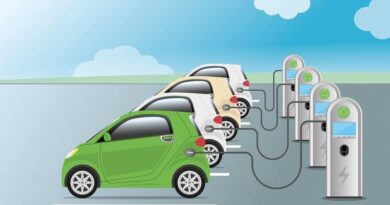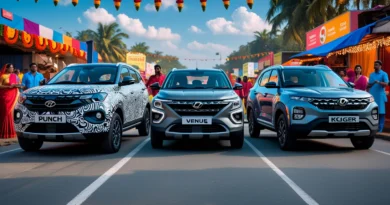Advantages and prospects of EVs
Are you planning to buy an EV? But you don’t know what are the advantages of that. We are more vulnerable to pollutants and greenhouse gases since cars emit a lot of carbon pollution into the atmosphere. The ecology is greatly improved by using electric vehicles.
In the world of the automobile industry, the concept of an electric vehicle (EV) is a relatively recent one. Although some automakers have built their entire line of vehicles around using electricity and being proactive, several also provide hybrid cars that run on gas and electricity.
If you want to know the benefits of an EV and what are the future aspects of Ev’s? Kindly read the whole article to gain some information.
Some advantages of Ev’s
We can get government grants for being environmentally conscientious by purchasing an electric vehicle. Even though we might ultimately pay more for our car, the benefits far outweigh the drawbacks. When considering investing in an electric vehicle.
We, as a user, can significantly reduce our gas costs by switching to an electric vehicle. However, there are a variety of advantages to buying an electric car in the current technological era.
- Low Costs of Maintenance
The upkeep cost is the key factor that may influence our decision to purchase an EV. Purchasing a vehicle with such an IC engine will include more mechanical components, increasing its complexity and maintenance challenges. Due to their straightforward design and operation, EVs are easier to maintain and less expensive.
- EVs produce NO INDIVIDUAL noise!
The ability to operate silently is another advantage an EV has over your current vehicle. The reasoning is straightforward: because there is no engine underneath, there is also no noise! One can even read a novel inside because the electric motor runs quietly! Regarding the practical side, an EV may always provide a more comfortable ride due to its fully silent operation, regardless of how quiet inside of a car with an engine may be. Manufacturers must add fake sounds to EVs because they are so silent to make them safe for pedestrians.
- Low Operation Costs
The running costs of EVs are a significant benefit over conventional IC engine vehicles. For instance, the Hyundai Kona can travel 450 kilometers on a single charge, so its operating expenses are lower than one rupee per kilometer! Isn’t that amazing? Considering India, this is the most significant benefit of purchasing an EV.
- Stop raising the price of petrol!
Do fluctuating fuel prices bother ourselves? We won’t have to be concerned about the daily fluctuations in gas and diesel costs if we purchase an EV. We won’t need fuel any longer if we get an EV. Therefore we won’t have to worry even though the government adjusts fuel costs based on market prices. We may always drive in peace!
- Easily Charged at Home!
We may be accustomed to the mob that unexpectedly gathers at the gas stations during peak hours. Additionally, getting ready to refuel also on way to the workplace can add to our tardiness. Because we can easily refuel an EV in this situation by simply plugging it in at residence for 4-5 hours, EVs have a big advantage. If we have an EV, our home can double our fuel station. If we somehow forgot to connect to your device, it would be the one downside to this situation. EVs today can refuel in under 60 minutes thanks to rapid charging capabilities!
- Simple to drive
From an electric scooter upwards to an electric bus, all-electric vehicles have no gears! Since there are no gear mechanics to operate, driving an EV is a delight. The only controls you need to employ to increase or reduce your speed are a set of pedals or buttons. If we believe that automated gasoline or diesel vehicles can provide our self with the same comfort level, we have further benefits for purchasing an EV.
Electric vehicle prospects for the future
Electric vehicles were formerly considered a market with significant development potential. This resulted from the rise in the cost of gas and oil. Electric vehicles were thought to provide a way for consumers to escape the pressure of high fuel prices in the future, but oil prices and gas later experienced a significant fall. The demand for electric vehicles is much less urgent now that oil and gas costs are still so low. Gas prices are unlikely to recover to the proportions required to make the fuel cost a pressing customer concern for quite some time, given the surge in US gasoline and oil production, which is still expanding.
Thus, the short- to medium-term customer demand for electric car makers’ products cannot be shaped by an eventual rebound in fuel prices. To compete shortly, they will need to rely on branding strategies, political stances, and pricing differentiation. However, some developments point to causes for hope.
Environmental issues continue to major in the desire for electric automobiles. The public interest in environmental problems could lead to a rise in the use of electric vehicles as customers adjust their purchasing habits to reflect shifting societal sentiments. The public’s interest in climate issues is likely to increase as talk of a political “Green New Deal” spreads. Still, it is not yet apparent if this will result in a significant change in public opinion. Even if it does, it’s uncertain whether this will ignite a renewed enthusiasm for buying electric cars. This political move could still be advantageous for producing electric vehicles, though.
Last but not least, it should be recognized that the demand for electric vehicles goes much beyond the market for personal vehicles.
Furthermore, electric cars are among the few practical possibilities for mobility outside the atmosphere because combustion is not conceivable in space. Space development offers a need to be fulfilled as more nations and private firms pursue an off-world presence, albeit it won’t be a market-driving tendency in the short- or medium-term like environmental issues or the expansion of Asian markets will be. This makes the field’s long- and very protracted growth prospects extremely alluring.
Conclusion We hope you gather some important information about these electric vehicles’ advantages and prospects. To sum up, we conclude that EVs are the only viable option for the future. Since fossil fuels are quickly running out, it would not be fair to use them all while we go about our daily lives. Although we still need fossil fuels to produce electricity, we are gradually shifting to renewable energy sources, which are unquestionably the way of the future. We have renewable sources of energy like solar and wind that don’t pollute. EVs are the way of the future, so we must adapt to them now.
FAQs
An electric vehicle (EV) is a type of vehicle that runs either entirely or partially on electric power. Unlike traditional vehicles, EVs use an electric motor and a battery instead of an internal combustion engine.
EVs come with several benefits:
Lower running and maintenance costs
Government incentives and subsidies
Zero tailpipe emissions
Silent operation
Easy home charging
Better driving comfort and simplicity
Yes. EVs produce zero direct emissions, which helps reduce air pollution. Additionally, as the electricity grid shifts toward renewable sources, the environmental benefits of EVs increase.
Absolutely. EVs have fewer moving parts, no oil changes, and minimal wear and tear. This significantly reduces maintenance costs over time.
Yes, most EVs can be charged at home using a standard electrical outlet or a faster home charger. Overnight charging is enough for daily commuting needs.
Charging time depends on the charger type:
Standard home charger: 4–8 hours
Fast charger: Under 1 hour (up to 80% charge)
EVs have significantly lower running costs. For example, some EVs in India cost less than ₹1 per kilometer to operate, compared to ₹6–₹10 per kilometer for petrol vehicles.
Modern EVs have improved range, some offering up to 400–500 km on a single charge. However, long-distance travel depends on the availability of fast-charging infrastructure along the route.
No, EVs are almost silent, providing a smooth and quiet driving experience. Due to this, some manufacturers add artificial noise for pedestrian safety.
Yes. As technology matures and production scales up, EV prices are expected to drop, making them more affordable for everyone.

